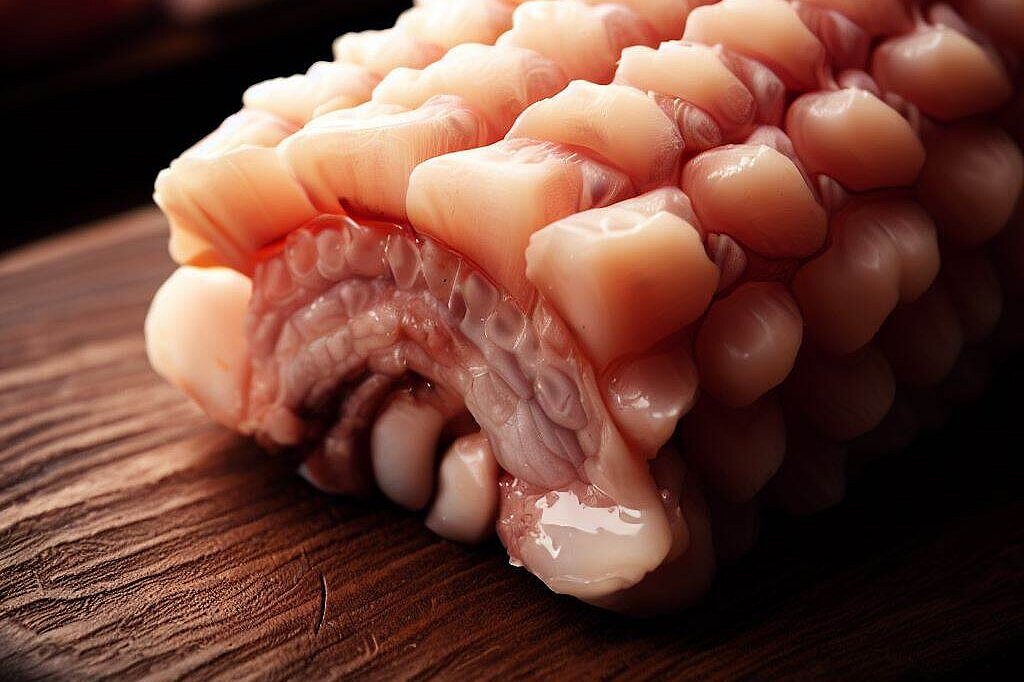Glucosamine

Glucosamine is a natural building block for your dog's joints. It can help to maintain and repair cartilage, relieve pain and improve mobility. But what exactly is glucosamine and how does it work? And what advantages and disadvantages does it have for your dog? Find out more about this important dietary supplement in this article.
What is glucosamine?
Glucosamine is an amino sugar found in your dog's body. It is formed from glucose and an amino acid called glutamine. Glucosamine is mainly found in joint cartilage, joint capsules and tendons. There it ensures a balanced relationship between cartilage formation and degradation1. This means that it supports the regeneration of cartilage cells and prevents their destruction through inflammation or wear and tear.
How does glucosamine work in dogs?
With increasing age or certain diseases such as osteoarthritis or hip joint dysplasia, the natural glucosamine level in the dog's body can fall. This causes the cartilage to become thinner and the joints to ache and feel stiff. To counteract this, you can give your dog additional glucosamine. It is usually obtained from crustaceans such as crabs or mussels or is produced synthetically.
Glucosamine has several positive effects on your dog's joints:
- It promotes the formation of glycosaminoglycans (GAGs), which are important components of the cartilage matrix.
- It inhibits enzymes such as hyaluronidase or collagenase, which accelerate the breakdown of cartilage tissue.
- It reduces inflammation and free radicals that can lead to swelling and joint damage.
- It improves joint lubrication by stimulating synovial fluid.
Through these effects, glucosamine can help your dog experience less pain, better movement and a higher quality of life.
What are the pros and cons of glucosamine for dogs?
Glucosamine is considered a safe and well-tolerated supplement for dogs. Most studies have found no serious side effects. Nevertheless, a few points should be borne in mind:
- The optimal dosage of glucosamine for dogs depends on various factors such as the dog's weight, age and state of health. In general, a dosage of around 200 mg per 5 kg of body weight is recommended. However, you should always talk to your vet before giving your dog glucosamine.
- The effect of glucosamine is not immediate. It may take several weeks for your dog's symptoms to improve. So you need to be patient and give the supplement regularly.
- The quality of glucosamine supplements can vary. You should make sure that you buy a high-quality product that does not contain any harmful additives. You should also make sure that the supplement contains enough active glucosamine sulphate or hydrochloride. Glucosamine sulphate or hydrochloride are the bioactive forms of glucosamine that can be better absorbed by the body.
- The administration of glucosamine can lead to side effects such as gastrointestinal complaints, allergies or changes in blood sugar levels in some dogs. If you notice such symptoms in your dog, you should stop giving glucosamine and contact your vet.
- The effect of glucosamine can be influenced by other factors such as your dog's diet, weight and exercise. Therefore, make sure your dog has a balanced and healthy diet, a healthy body weight and regular moderate exercise.
Glucosamine is a useful dietary supplement for dogs with joint problems. It can help protect and repair cartilage, relieve pain and improve mobility. However, you should always speak to your vet before giving your dog glucosamine. You should also pay attention to the quality, dosage and possible side effects of the preparation. And don't forget that a healthy diet and exercise are also important for your dog's joint health.
If you notice any signs of hypersensitivity or poisoning in your dog, you should see your vet immediately. We are not a substitute for a vet, but we try to be as accurate as possible. Every dog reacts differently and we recommend you get a second opinion or consult your vet if in doubt.
Stay healthy and take good care of your four-legged friend!😊
Similar to Glucosamine
Chondroitin is a so-called glycosaminoglycan, which consists of sugar molecules that bind to proteins. These compounds form large molecules called proteoglycans. Proteoglycans are important building...
Hyaluron has various positive effects for your dog. Firstly, it supports skin health and can help with dry, flaky or inflamed skin. Hyaluron moisturizes and promotes wound healing. It can also make...
What is methylsulfonylmethane? Methylsulfonylmethane (MSM) is a natural substance that is produced from decomposed phytoplankton. It contains around 34% sulphur, a vital nutrient for humans, animals...
What is collagen? Collagen is a protein that is made up of amino acids. There are different types of collagen, which differ in their structure and function. The most common are types I, II and III,...



